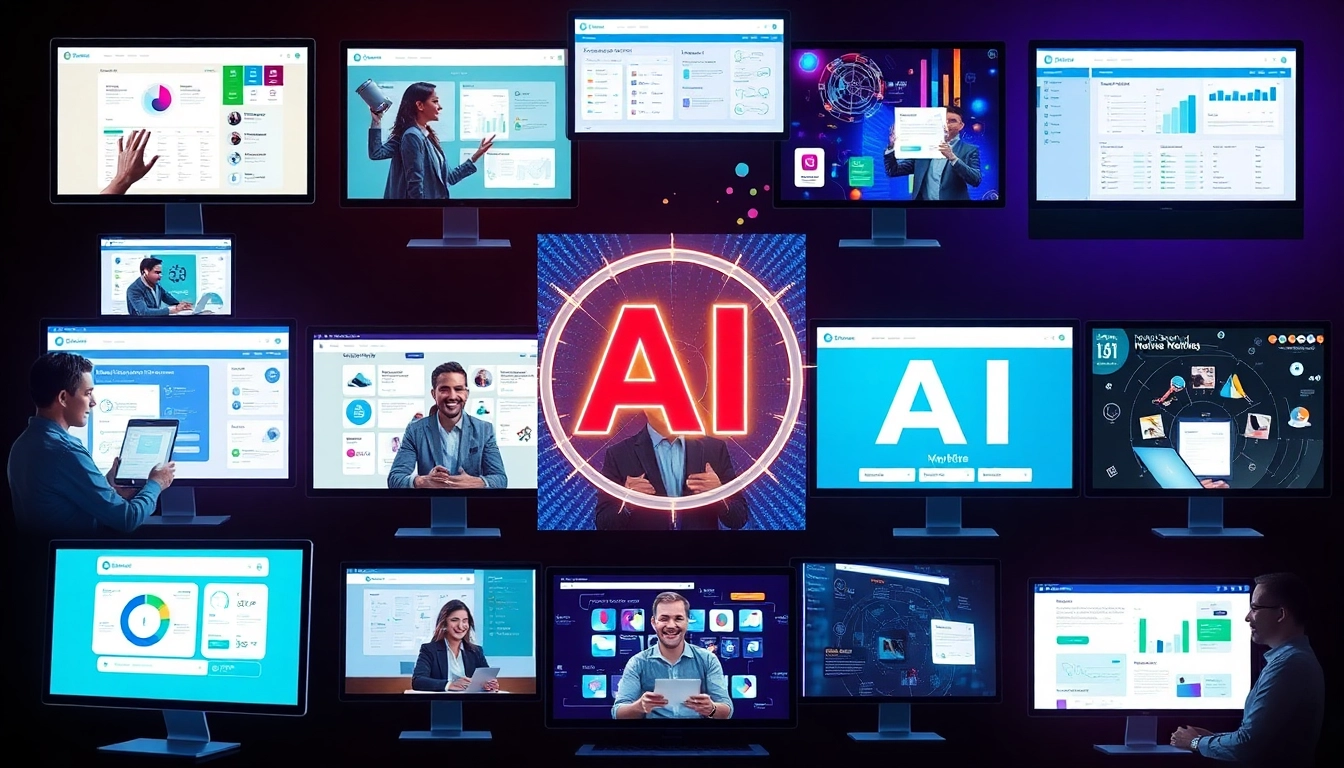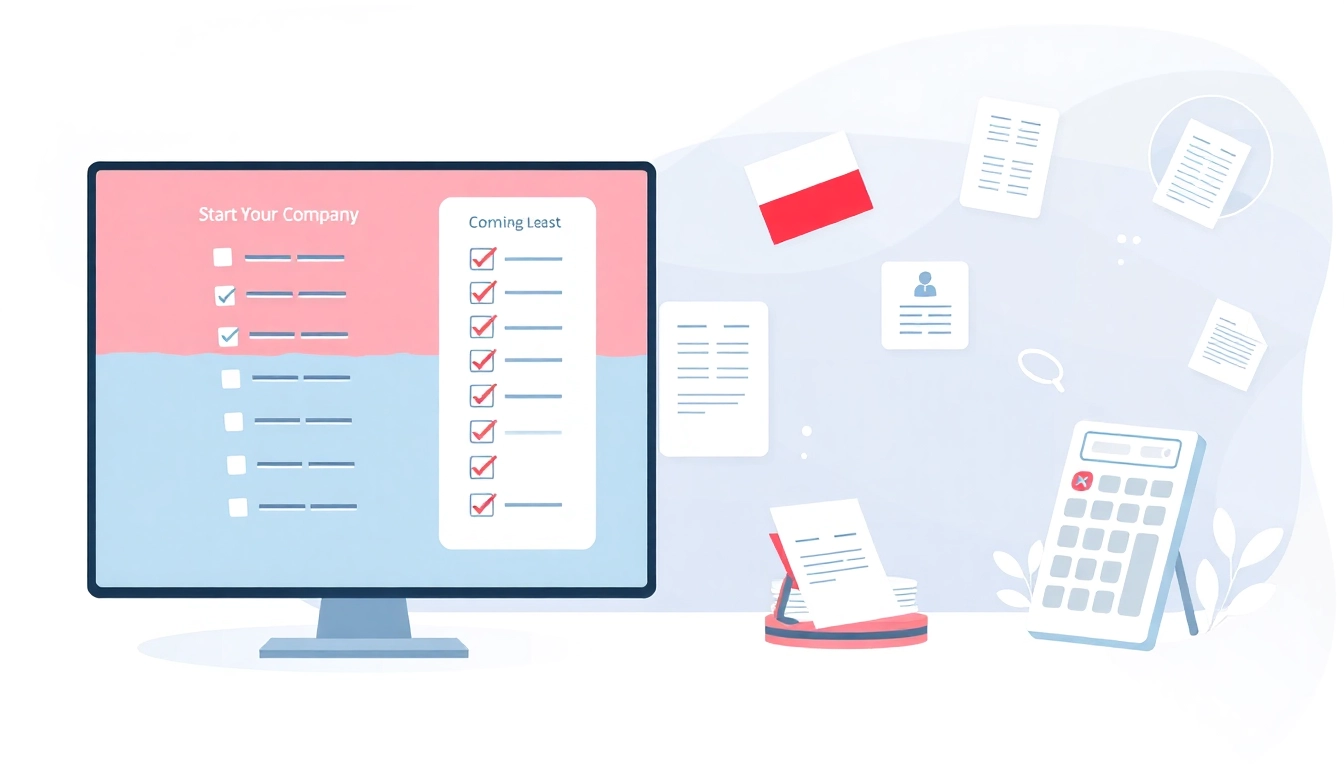Understanding AI Marketing Tools
What Are AI Marketing Tools?
AI marketing tools utilize artificial intelligence technologies to improve and automate marketing processes. These tools can analyze vast amounts of data to identify trends, preferences, and behaviors of consumers, allowing businesses to make data-driven decisions. By implementing AI marketing tools, companies can enhance customer engagement, optimize marketing strategies, and ultimately drive better ROI.
Benefits of Using AI in Marketing
The integration of AI in marketing brings several advantages:
- Automation: Tasks such as social media posting, email responses, and campaign analysis can be automated, freeing up marketers to focus on strategy and creative tasks.
- Data Analysis: AI tools can sift through large data sets, providing insights that were previously hidden, enabling businesses to make informed decisions.
- Personalization: AI algorithms can tailor content and product recommendations to individual user preferences, boosting customer satisfaction and loyalty.
- Efficiency: With AI, marketing teams can streamline workflows, cutting down on repetitive tasks and ensuring that campaigns run smoothly.
- Cost Savings: By improving efficiency and targeting, businesses can decrease their overall marketing spend while increasing efficacy.
Common Types of AI Marketing Tools
AI marketing tools come in a variety of formats, each serving different needs:
- Chatbots: Used for customer service and engagement, chatbots provide instant responses to customer queries and can handle multiple interactions simultaneously.
- Predictive Analytics: These tools analyze historical data to predict future trends, enabling proactive marketing strategies.
- Content Generation: AI-powered tools can create content such as blog posts, social media updates, and emails with minimal human input.
- Marketing Automation Platforms: These comprehensive solutions manage various marketing tasks, such as email marketing and lead nurturing, based on predefined rules and AI insights.
- Social Media Management Tools: AI enhances social media strategies by optimizing post timing, content suggestions, and audience engagement metrics.
Top AI Marketing Tools for Businesses
Leading Tools in 2025
As we progress into 2025, several AI marketing tools have emerged as leaders in the industry:
- Replo: Ideal for creating e-commerce landing pages, Replo combines ease of use with powerful design capabilities, enhancing conversion rates.
- Surfer SEO: A tool designed for content optimization, Surfer SEO analyzes top-ranking pages to provide actionable improvements for SEO-driven content.
- Jasper: Known for its content generation capabilities, Jasper AI helps marketers create marketing copy that resonates with their audience with speed and efficiency.
- Smartly.io: This platform is revolutionizing social media marketing through advanced automation and data-driven insights that adjust campaigns in real-time.
- HubSpot: Offers an all-in-one inbound marketing solution with features for CRM, email marketing, and social media management coupling with AI functionalities.
Tools for Different Marketing Strategies
Different marketing strategies require unique sets of tools. Here, we categorize tools suitable for various marketing approaches:
- Content Marketing: Tools like BuzzSumo help identify high-performing content and topics across the internet, allowing marketers to align their strategies accordingly.
- Email Marketing: Platforms such as ActiveCampaign and Mailchimp incorporate AI for personalized email campaigns based on user behaviors and preferences.
- Social Media Marketing: Tools like Buffer and Hootsuite utilize AI to optimize posting schedules and analyze engagement metrics.
- Lead Generation: Drift and similar tools use AI chatbots to qualify leads in real time, improving conversion rates.
- Customer Relationship Management (CRM): Salesforce leverages AI to provide insights into customer interactions, suggesting next best actions for sales teams.
Cost Considerations and ROI
Determining the cost-effectiveness of AI marketing tools requires understanding both direct expenses and potential ROI:
- Initial Investment: While the upfront costs may seem high, adopting AI marketing tools often results in quicker return rates through enhanced efficiency.
- Performance Metrics: Tracking metrics such as conversion rates, customer engagement scores, and campaign ROI provides insights into the effectiveness of the tools.
- Long-term Benefits: Over time, the ability of AI to refine marketing processes leads to sustained performance improvements and customer loyalty, often outweighing initial costs.
Implementing AI Marketing Tools
Steps to Integrate AI Tools into Your Strategy
Integrating AI into your marketing strategy involves several key steps:
- Identify Goals: Clearly define what you aim to achieve with AI tools, such as improved customer engagement, lead generation, or content efficiency.
- Assess Current Infrastructure: Evaluate existing marketing strategies and systems to identify where AI can add the most value.
- Select Appropriate Tools: Based on your goals and needs, choose AI tools that align with your strategic objectives.
- Train Your Team: Ensure that your marketing team is well-versed in using the chosen tools to maximize their potential.
- Monitor and Optimize: Continuously track the performance of AI tools and campaigns, adjusting strategies as necessary to optimize outcomes.
Measuring Effectiveness and Performance
To ensure the success of AI tools in marketing, it’s crucial to measure their performance effectively:
- Define Key Performance Indicators (KPIs): Establish KPIs that directly correlate with your business goals, such as lead conversion rates and customer acquisition costs.
- Utilize Analytical Tools: Implement tools like Google Analytics to collect and analyze data related to your campaigns, helping you gain insights into performance.
- Continuous Feedback Loops: Create mechanisms for feedback and adaptation, ensuring teams can quickly iterate based on performance data.
Case Studies of Successful Implementations
Examining successful case studies illustrates the value of AI marketing tools:
- Case Study 1: Nike – Utilizing predictive analytics, Nike was able to enhance customer personalization, resulting in increased sales through targeted marketing campaigns.
- Case Study 2: Coca-Cola – By implementing chatbots across various customer service channels, Coca-Cola saw a significant reduction in response times and increased customer satisfaction.
- Case Study 3: Sephora – Integrating AI-powered recommendation engines, Sephora improved the personalization of customer interactions, leading to higher engagement and repeat purchases.
Future Trends in AI Marketing
Innovations to Watch
As AI continues to evolve, several innovations are predicted to shape the future of marketing:
- Voice Search Optimization: With the rise of voice-activated devices, AI tools will increasingly focus on optimizing content for voice search interactions.
- Augmented Reality Marketing: AI combined with AR technology will facilitate immersive experiences, allowing consumers to interact with products in innovative ways.
- Advanced Data Privacy Tools: As privacy concerns grow, AI tools will need to integrate robust data protection processes to maintain consumer trust.
The Role of Data Privacy
As we embrace AI tools for marketing, data privacy will become increasingly critical:
- Regulatory Compliance: Marketers must ensure that their AI implementations comply with data protection regulations, such as GDPR and CCPA.
- User Consent Management: Businesses will need to establish transparent processes for obtaining consent from users when collecting and analyzing their data.
- Ethical Use of AI: Ensuring that AI tools are used ethically to protect user privacy and avoid biases in decision-making will be essential moving forward.
Predictions for 2026 and Beyond
Looking ahead to 2026 and beyond, we can expect:
- Increased Automation: The trend toward automation in marketing will only accelerate, with AI taking on more complex tasks traditionally handled by humans.
- Dynamic Content Creation: AI will enable real-time content adaptation based on user behavior, leading to highly personalized marketing experiences.
- Greater Focus on Customer Experience: AI tools will prioritize enhancing the customer journey and creating seamless interactions across channels.
Choosing the Right AI Marketing Tools
Assessing Your Business Needs
To select the right AI marketing tools, businesses must first assess their unique needs:
- Identify Pain Points: Determine the main challenges faced in current marketing efforts that AI could address.
- Set Clear Objectives: Outline specific goals and desired outcomes from utilizing AI tools to guide your selection process.
- Evaluate Team Capability: Assess your team’s expertise and resources, as some tools may require advanced knowledge or training.
Comparing Features and Usability
When evaluating potential AI marketing tools, comparison is key:
- Feature Set: Compare functionalities of various tools to assess which ones align best with your marketing objectives.
- User Experience: Take into account usability and the learning curve, as more intuitive tools may lead to quicker implementation and adoption.
- Integration Capability: Ensure that selected tools can integrate seamlessly with your existing marketing stack for smooth functionality.
Expert Recommendations and Resources
For businesses navigating the landscape of AI marketing tools, expert recommendations can provide invaluable guidance:
- Industry Blogs and Webinars: Following leading marketing blogs and attending webinars can keep you informed about the latest tools and strategies.
- Consulting Services: Engaging with marketing consultants who specialize in AI and automation can help tailor solutions to your specific needs.
- Peer Reviews and Case Studies: Analyzing case studies and reviews can provide insights into the effectiveness and performance of various tools.



